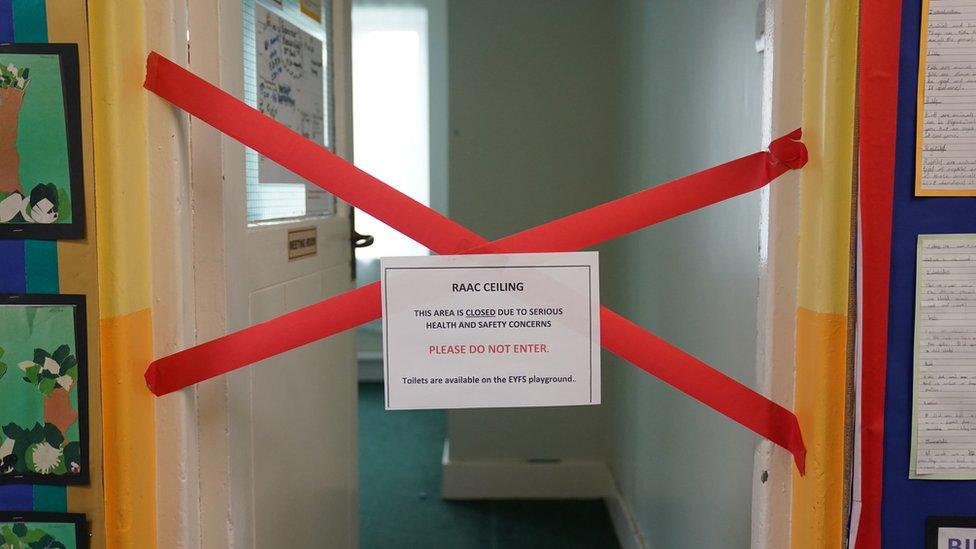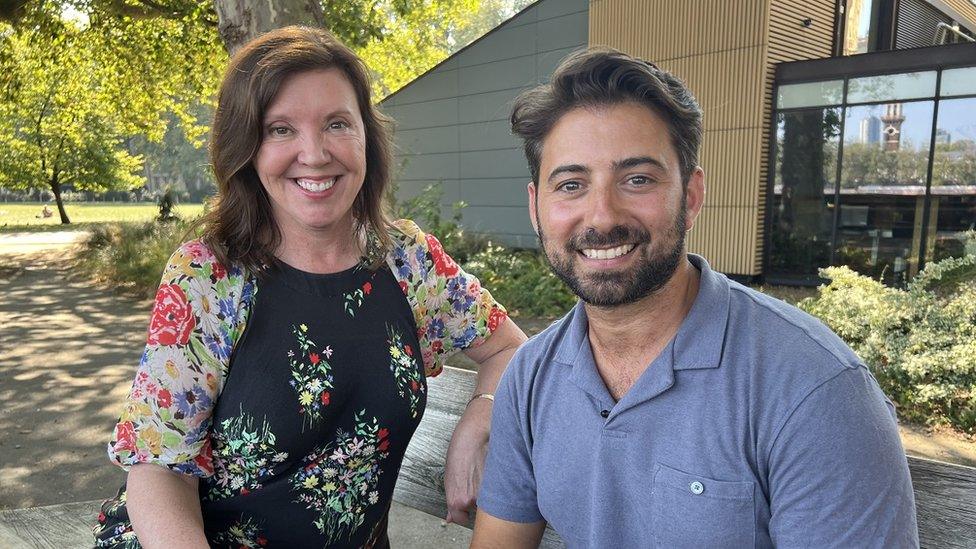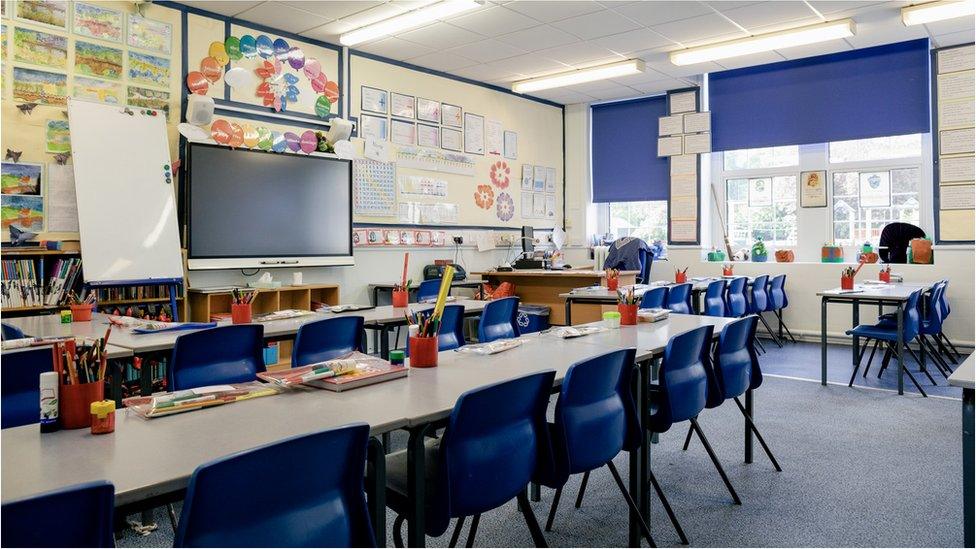Raac: Pupils say they are still affected by crumbling concrete in their school
- Published
- comments
Newsround spoke to students still being affected by Raac
In September, at the start of the new term, some schools couldn't fully reopen because of Raac - a type of lightweight concrete used in buildings.
It was found to be crumbly and unsafe, so for a while some pupils couldn't head back into the classroom and had to do online learning.
It has now been more than six months since problems with Raac first started, but there are still many students who are being affected by the issue.
Newsround visited a secondary school near Ipswich where students are missing out on science experiments, are often moved from classrooms and feel like they are behind with their education.
What is Raac?
Reinforced autoclaved aerated concrete - or Raac for short - is a lightweight concrete that was used in roofs, floors and walls between the 1950s and 1990s.
It was a cheaper alternative to standard concrete, but it's not as strong and lasts for around 30 years.
Some schools and other buildings - like police stations and hospitals - which were built during this time, have now been found to have Raac which is too old and may not be safe enough anymore.
How many schools have been affected?

Just days before the start of the new school term back in September, a beam collapsed in a school which had Raac. As a precaution, the English government ordered all schools with the concrete to close areas that may be affected, unless there were safety measures in place.
In England more than 200 schools and colleges have Raac, in Scotland there are 39 schools, five in Wales and currently one in Northern Ireland.
'I feel behind' - students tell Newsround how Raac has affected their education

We visited one secondary school near Ipswich where Raac was discovered in a building, which now means they've lost six science labs, an IT suite, all the maths rooms and some offices.
One solution to make up for the lost classrooms, is to use temporary portacabins - but these come with their own challenges.
Students told Newsround they found them cold, noisy and it was tricky finding your class at first because they all look the same.
These portacabins also don't have the facilities for science experiments or design technology projects.
"We can't do our science experiments because we don't have any running water or gas so we cant use Bunsen burners... it's been quite annoying not to be able to do those science lessons because they're quite fun," said one student.
For this group of Year 8s it's also been hard because it was only a few years ago when they missed school because of the coronavirus pandemic.
When asked how they felt about their education over the past few years, one student said: "I've found it difficult, I feel behind because we've missed two and a bit years of education."
What have the government said?

The Department of Education in England said they have identified schools and colleges affected by Raac and announced how they will be funded to remove it for good.
"Work is already underway, and for schools receiving more extensive works through the School Rebuilding Programme, we will confirm when works are expected to start by the end of the summer term," a spokesperson for the Department of Education added.
Funding has been provided by governments in Wales and Northern Ireland to work on the faulty buildings affected there.
The Scottish government told us: "In Scotland, it is the statutory responsibility of local authorities to manage and maintain their school estate - they own school buildings, unlike in other parts of the UK and as such they have a duty to maintain their own buildings.
"The Scottish government is aware that Raac has currently been identified in 32 schools in operation - all of which have introduced mitigations to protect pupils and staff."
Has your school been affected by Raac? Has it affected your education? Let us know in the comments below...
- Published8 September 2023

- Published4 September 2023

- Published7 September 2023

